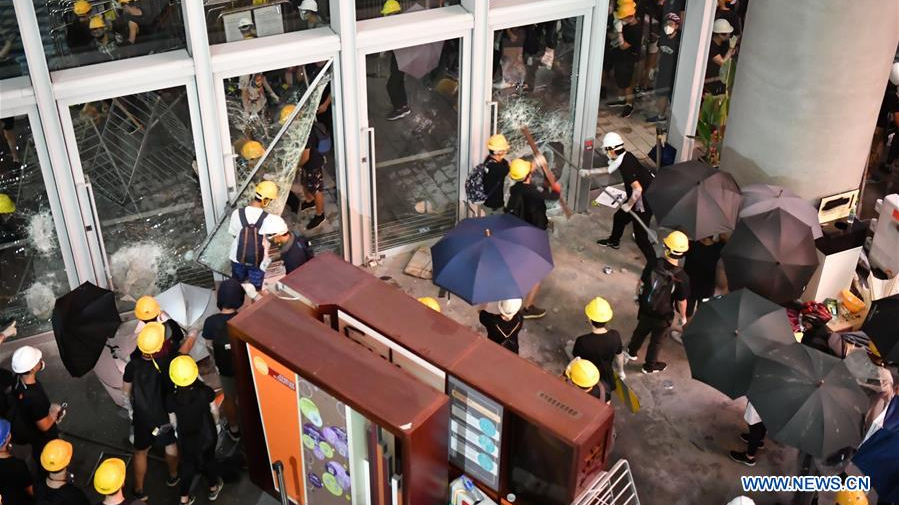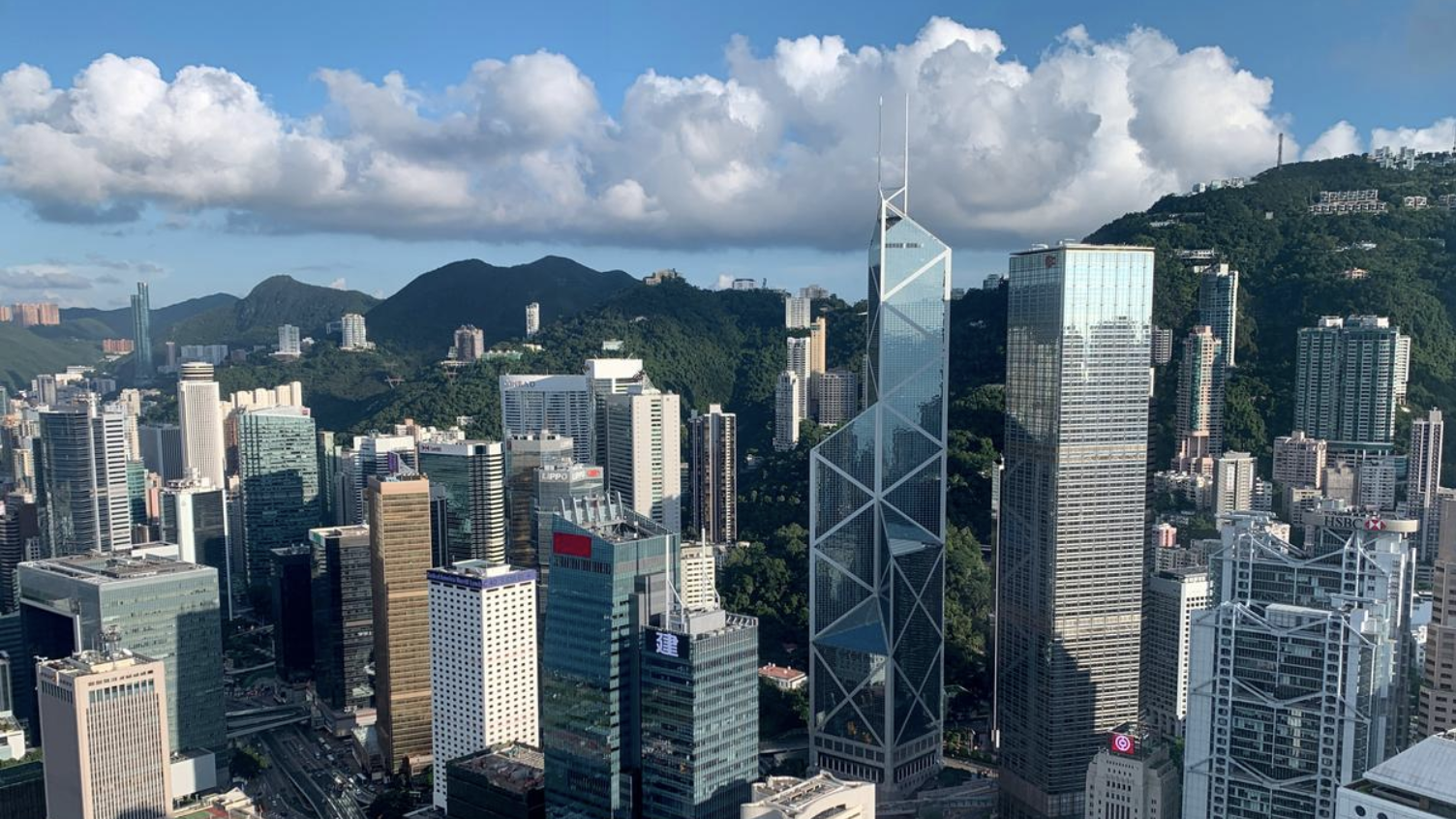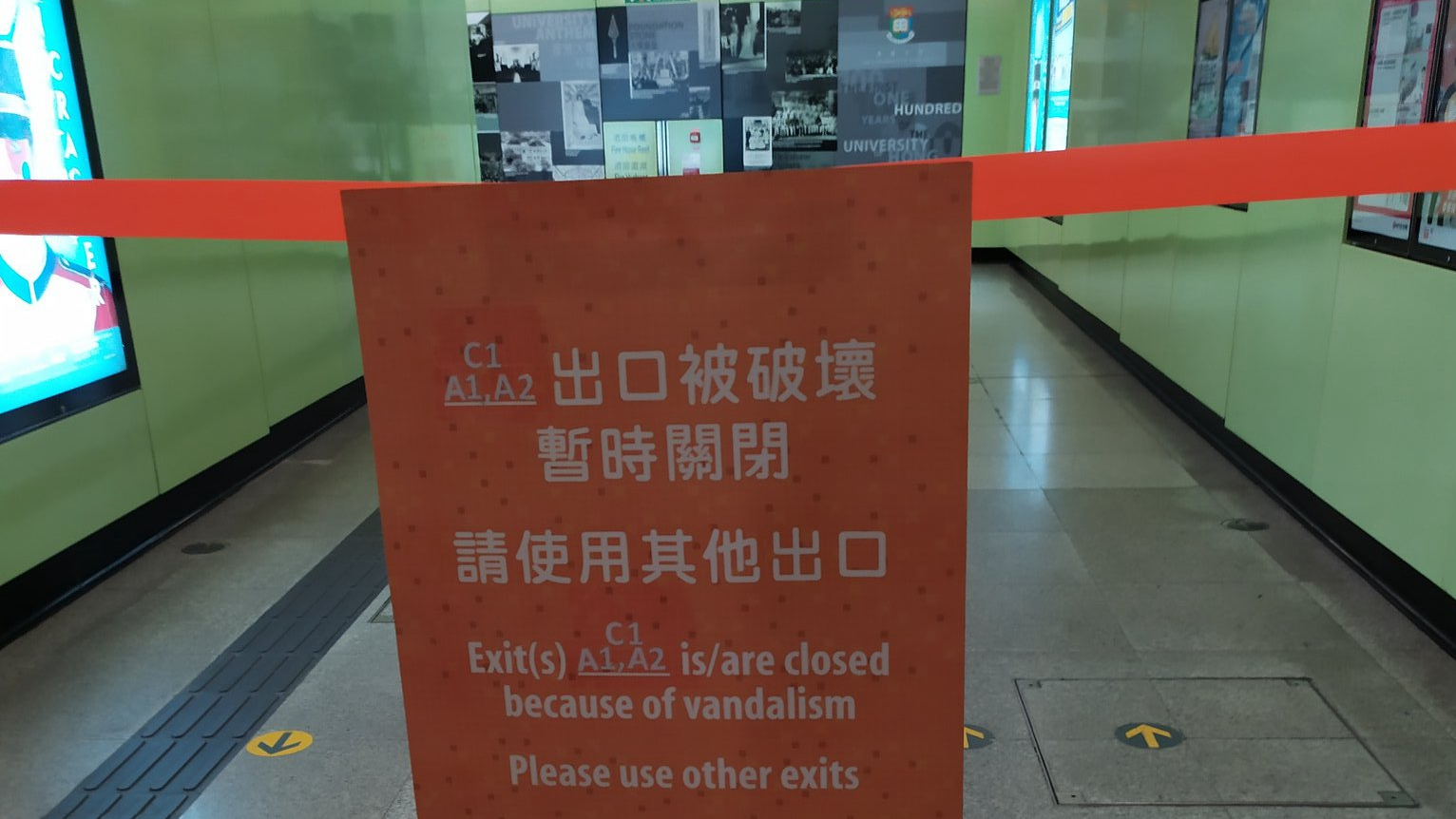
Violent radicals attempt to break into the Legislative Council building in Hong Kong, China, July 1, 2019. /Xinhua Photo
Violent radicals attempt to break into the Legislative Council building in Hong Kong, China, July 1, 2019. /Xinhua Photo
Editor's note: Michael Tai is professor of development studies at the Beijing Institute of Technology and author of "U.S.-China Relations in the 21st Century: A Question of Trust." The article reflects the author's opinions, and not necessarily those of CGTN.
As protests in Hong Kong enter their sixth month, one thing which stood out has been the one-sided reporting by the international media. News outlets such as CNN, BBC, the New York Times have been openly partisan, singing in unison in support of the protesters. Reporting is selective and language used in such a way as to privilege one side against the other.
The anarchy on the streets of Hong Kong would simply not be allowed anywhere else on the planet; note the way the state acted against protesters in Ulster, the African-American Civil Rights Movement, the Occupy Wall Street Movement, France's yellow vests and the Palestinians.
Why is the West so quick to side with the protesters in Hong Kong but not in Gaza? Why does Hong Kong receive so much more attention than Gaza despite the fact that casualties in the latter number in the thousands with hundreds maimed by live fire from Israeli snipers? Why aren't the Israeli police and army held to account in the same way as the Hong Kong police?
Contrary to popular belief, the Western press is not free but beholden to and influenced by corporate advertising clients and interest groups including the political and financial elite. In their seminal 1988 work Manufacturing Consent: The Political Economy of the Mass Media, Noam Chomsky and Edward S. Herman studied the role of the mass media as a propaganda tool for manufacturing public consent and identified five editorially distorting filters applied to news reporting, among which is anti-communism.

The Hong Kong Special Administrative Region, China, November 24, 2019. /Reuters Photo
The Hong Kong Special Administrative Region, China, November 24, 2019. /Reuters Photo
Local Hong Kong support for the protests comes from three groups of staunch anti-communists: those who fled the Chinese mainland in the 1960s, those who fled Vietnam in the 1970s, Christians and other religious devotees. All three hold grievances against Beijing, and their prejudice runs so deep that they refuse to see how much China has changed.
Many will not even step across to Shenzhen to witness it for themselves, preferring instead to believe that the mainland is just like Nazi Germany or fascist Japan. Clinging to naive black-and-white notions of "democracy" versus "communism," they evince a shallow understanding of what each entails even though many Hong Kongers who left in the wake of handover in 1997 have since returned sobered by unemployment, racial discrimination, rising crime and declining morals in the West.
Opinion polls by Western researchers consistently show a high level of satisfaction by Chinese citizens toward their government. Available since 2002, Pew surveys indicate a clear lead in Chinese satisfaction in their country's direction over the satisfaction expressed by Americans.
In the 2013 survey of 39 countries, Chinese expressed the highest satisfaction with their country's direction. The 85 percent satisfaction rate handily outstripped the 57 percent in Germany, 33 percent in Japan, 31 percent in the U.S. and 24 percent in South Korea. In yet another poll of 28 countries and regions by Edelman Global Public Relations in 2017, the Chinese showed the highest trust (76 percent), whereas in several recent Gallup polls, Americans gave their president, Congress and executive branch an "F." In the 2017 poll, President Trump and Congress received an approval of 36.9 percent and 13 percent respectively while only 21 percent of Americans felt satisfied with the way their country was going.
But Washington and London continue to side with the protesters hailing them as "pro-democracy" without spelling out what that really means. In what sense are the protesters democratic when they commit arson and violence against those who do not share their views? Such behavior used to be called fascist. The term "democratic" has become synonymous with freedom and justice, and any group that wears that label is assumed to be good and deserves support.

A sign reminds people that the exits are closed at the HKU station, Hong Kong, China, November 24, 2019. /Photo by Tom Fowdy
A sign reminds people that the exits are closed at the HKU station, Hong Kong, China, November 24, 2019. /Photo by Tom Fowdy
But one only has to consider the atrocities committed by Western democracies to see that name and substance can be two very different things. Any serious survey of colonial history will disabuse readers of the notion of benevolent Western democracy.
White colonizers acted with impunity against native inhabitants, and there was scant regard for human rights in the Americas, French Indochina, Dutch Indonesia, Portuguese Malacca or British India.
Consider the decimation of Native Americans by British settlers or the brutal enslavement of the Arawak Indians by the Spaniards (documented by the Dominican friar Bartolomé de las Casas). By force of arms, Western democracies reduced China to a semi-colony.
According to a recent study published in the journal Geophysical Research Letters, the Bengal famine of 1943 which killed up to 3 million people was not the result of drought but because then-British Prime Minister Winston Churchill deliberately diverted food stocks from starving Indian civilians to well-supplied British soldiers and to build up European stockpiles. The CIA's role in fomenting unrest and toppling democratically elected leaders around the world is not a well kept secret, and the list of injustices gets longer as fresh evidence emerges.
In light of modern history, the Hong Kong Human Rights and Democracy Act – passed almost unanimously by the U.S. Congress last week, calling for sanctions against Chinese mainland officials and Hong Kong officials whom Washington deems to have committed human rights abuses in Hong Kong – is the height of hypocrisy.
Harvard historian Arthur Schlesinger affirms that for much of its history, America has been a racist nation. Historically, whites have discriminated against Native Americans, blacks, Asians, Mexicans, and excluded them from the American community. The racism continues today and finds its way into U.S. foreign policy.
Former Prime Minister of Singapore Lee Kuan Yew observed: "For America to be displaced, not in the world, but only in the western Pacific, by an Asian people long despised and dismissed with contempt as decadent, feeble, corrupt, and inept is emotionally very difficult to accept. The sense of cultural superiority of the Americans will make this adjustment most difficult."
White supremacist sentiments fuel American angst about a rising China, and Hong Kong protesters serve as ready pawns in Washington's bid to contain China.
(If you want to contribute and have specific expertise, please contact us at opinions@cgtn.com)